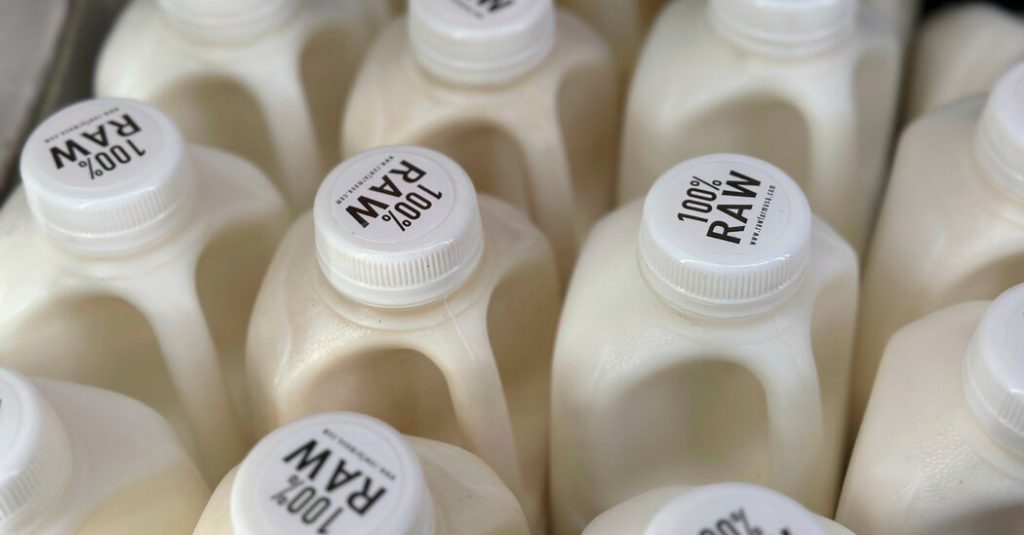A study published recently revealed that unpasteurized milk contaminated with the H5N1 bird-flu virus has made mice sick by affecting multiple organs. Previously, cats had died after consuming raw milk containing the virus. The data suggests that virus-laden raw milk may pose a threat to other mammals, including humans. The discovery has prompted experts to advise against drinking raw milk due to safety concerns. Although most commercial milk in the United States is pasteurized, traces of the virus have been found in dairy products sampled nationwide, raising concerns about the safety of raw milk consumption.
The presence of the virus in milk samples from an affected dairy herd in New Mexico was analyzed in the study. The researchers found that the virus remained infectious in refrigerated raw milk for several weeks, even at cold temperatures. Flu viruses are known to survive well in refrigerated environments, especially when stabilized by milk proteins. Mice that were fed contaminated milk became ill, displaying symptoms such as ruffled fur and lethargy. These mice were found to have high levels of the virus in their respiratory systems and moderate levels in other organs, as well as in mammary glands. This unexpected finding raises questions about the virus’s ability to infect various hosts and its potential impact on farm animals.
The cats that died after drinking contaminated milk had exhibited severe neurological symptoms, prompting concerns about the virus’s effects on mammals. It is still unclear how the presence of the virus in mammary glands may impact the course of infection in animals or humans. Although pasteurization can potentially reduce the virus in raw milk, the study found that the virus was not completely inactivated under typical pasteurization conditions. This suggests that pasteurized milk may still pose a risk if contaminated with the H5N1 virus.
Consumption of raw milk has become popular in recent years, with claims that it tastes better and is more nutritious than pasteurized milk. Some argue that raw milk boosts immunity, but experts caution that it can lead to serious complications or death due to various pathogens. Notably, outbreaks traced to raw milk consumption between 1998 and 2018 resulted in hospitalizations, deaths, and illness in thousands of individuals. With the recent discovery of the H5N1 virus in dairy herds, concerns about the safety of raw milk consumption have heightened, prompting health officials to advise against its consumption. The findings in the study underscore the potential risks associated with consuming unpasteurized milk contaminated with infectious viruses.


